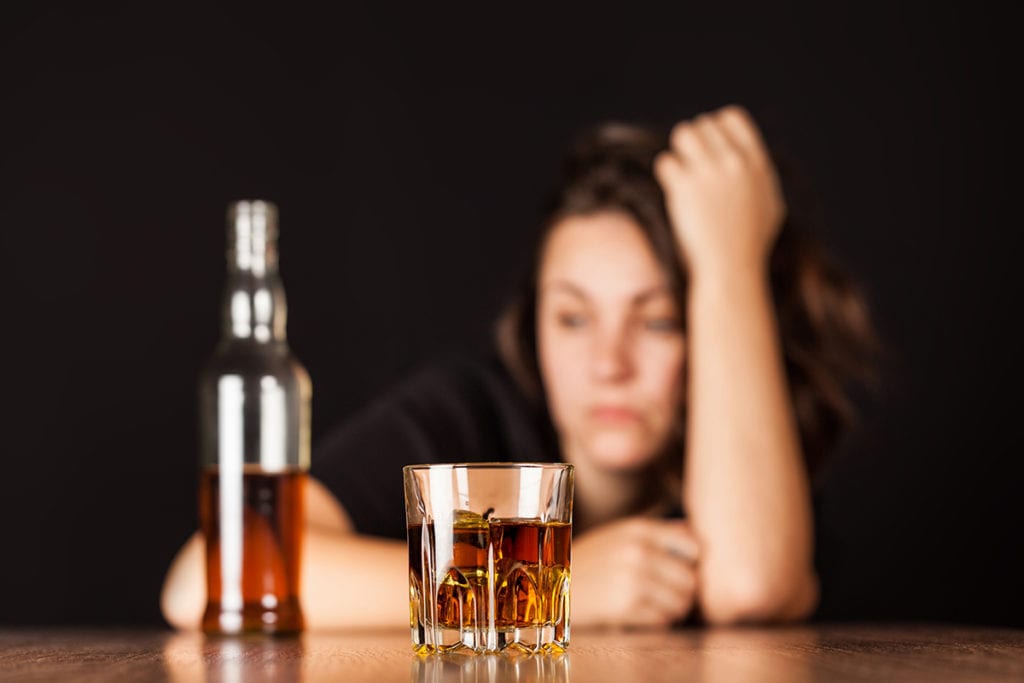Heavy drinkers often find that they experience high levels of fear and concern and ask themselves, “can alcohol cause anxiety?” The answer to this question is both simple and complex. As a result, individuals in this situation need to understand how a high-quality dual-diagnosis treatment center in Hanover, PA can help manage both their anxiety and alcohol addiction.
Can Alcohol Cause Anxiety? Yes.
Stated simply, yes, alcohol can cause anxiety and many more problems in a person’s body. The reasons for this correlation consist of the mental and physical reactions to alcohol. When ingested, alcohol often reacts to the chemicals in a person’s body in adverse ways, which may not only trigger anxiety but create an addictive cycle that is often hard to overcome. For example, a study entitled “Alcohol, Aging, and the Stress Response” found that alcohol triggered the release of cortisol. This hormone triggers stress- and anxiety-related symptoms, such as higher blood pressure, a fight-or-flight response, excessive fear, and high anxiety. Therefore, alcohol is directly related to higher stress, particularly in those who regularly abuse it. This connection was also noted in a study entitled “Anxiety and Alcohol Use Disorders.” This study stated that “The co-occurrence of anxiety disorders and alcohol use disorders (AUDs) is relatively common,” saying that people who abuse alcohol often struggle to manage their anxiety correctly. This painful combination caused what the medical world calls comorbid disorders.
The Nature of Comorbid Disorders
The study Defining Comorbidity: Implications for Understanding Health and Health Services stated that “Comorbidity is associated with worse health outcomes, more complex clinical management, and increased health care costs…” It also made another important point: “There is no agreement, however, on the meaning of the term, and related constructs…,” which is an issue for those with substance abuse disorders. For example, a person with anxiety related to drinking may improperly identify their fear. Some may believe that work triggers the majority of their worry or blame family members and friends. As a result, they may isolate themselves and make the situation even worse. For example, they may drink heavily to manage their loneliness, which then increases their anxiety. Therefore, immediate treatment is necessary to ensure that people get the help that they need to be healthy. Thankfully, specialized treatment options provide a high level of care that can help people escape the grips of damaging physical and mental addiction.
Treating This Problem
When answering “can alcohol cause anxiety?” and working to assess this problem, individuals must understand the underlying complexity. For example, psychological disorders, like anxiety, may not only occur when drinking alcohol but worsen a person’s alcohol abuse. This problem is known as a co-occurring disorder and often creates a very tight knot of substance abuse. Medline Plus states that co-occurring disorders feed off of each other and may co-occur and worsen each other’s symptoms. As a result, individuals with this problem need to treat both issues at the same time. The leading care option for this problem is dual-diagnosis. It operates by managing both the physical and mental elements of addiction. The Ranch PA offers a men’s and women’s drug rehab center in Hanover, PA for treatment. Individuals in this program go through detox paired with individual and group therapy. They also receive psychological counseling for the underlying issues – such as anxiety – that feed their addiction. In this way, a person can manage their addiction in a total-body way.
Getting Help
If you or someone you love needs an affirmative answer to the question “can alcohol cause anxiety?” please contact us at The Ranch PA. Calling us at 717.969.9126 puts you in touch with a professional who understands your addiction. You can then get paired with a care option that works for you, such as dual-diagnosis or pain management, to help you manage your substance abuse disorder.

